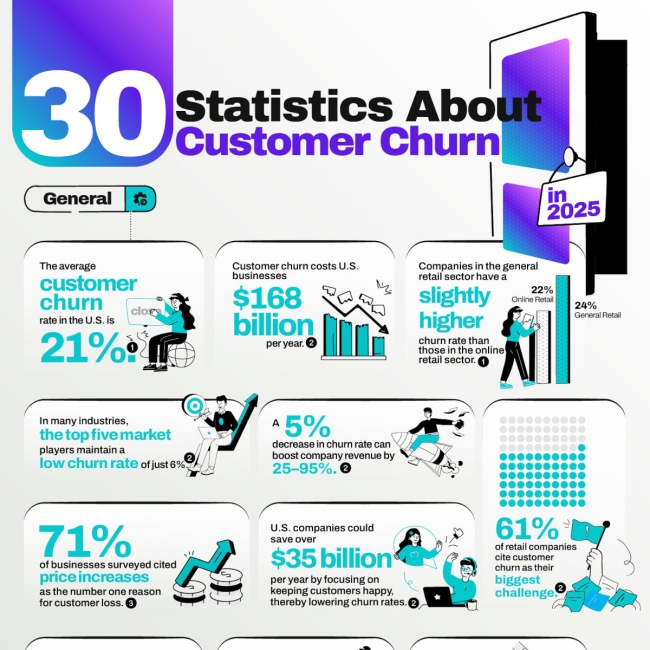When more than half of hotel guests cut spending after a poor experience, understanding what drives consumer sentiment is crucial to creating experiences that meet - or exceed - their expectations. New research from Qualtrics offers fresh insights into consumer mindsets regarding hotels and hospitality, revealing ways customer experience leaders can win over travelers.
“As travel portals make it easy to compare hotels with similar locations and prices, guest experience has emerged as a key differentiator, heightening the stakes for every interaction,” said Isabelle Zdatny, head of thought leadership at Qualtrics XM Institute. “Consistently delivering these types of differentiated experiences requires brands to understand the evolving preferences of travelers and then deliver tailored experiences that seamlessly connect online discovery with the in-person hotel experience.”
Choosing the right hotel
What draws travelers to pick a hotel to stay in? When it comes to selecting a hotel, the research clearly shows that cost and convenience reign supreme – but don’t count out the value of a free breakfast! The two most important factors in picking a hotel were location and budget, followed by 62% of travelers making their selection based on the availability of free breakfast.
The price is a key factor here - while the free breakfast is a draw for nearly ⅔ of travelers, just 47% made their selection based on whether or not the hotel had on-site dining.
Top motivating factors in selecting a hotel
Most convenient location - 77%
Fits my budget - 75%
Availability of free breakfast - 62%
Helpful customer service - 58%
To earn points/rewards - 51%
Clear preference for booking hotels through brand websites
When the time comes to actually book a room, the majority of travelers book directly through brand websites, and this share is increasing. The gap between direct brand website bookings and the next most popular method widened by 6 percentage points over just the past month.
However, only 14% of travelers booked through a brand app, which is even less than those who booked through third-party apps. This disparity raises questions about brand loyalty, suggesting that travelers may be shopping around for the best offers rather than going directly to dedicated apps.
Travelers are also more likely to book rooms directly with premium hotels, like Marriott and Hilton, than they are with luxury (like Four Seasons and the Ritz) or select (such as Aloft and Hilton Garden Inn) hotels, both of which are more likely to be booked through a third party. These hotels may have found the sweet spot between the price and the experience they offer.
The generational divide
The research reveals that while young travelers are initially harder to please, they also show stronger signs of brand affinity.
Young travelers between 18 and 34 years old reported significantly lower satisfaction (76%) compared to the overall average of 84%. However, these younger consumers have stronger attachments to the brand once they find a hotel chain they like, and are more likely than older travelers to pick the same hotel every time they travel. They also prioritize earning rewards points more than older travelers.
This combination of being harder to please initially yet more loyal once satisfied presents both a challenge and an opportunity for hospitality brands.
What this means for customer experience leaders in hospitality
Overall, people are happy with their stays, with 84% of consumers report being satisfied with their hotel experiences. This level has remained consistent since the beginning of the year, suggesting that hotels are largely meeting the baseline expectations of their guests.
“Changing traveler demographics and market pressures are accelerating shifts in guest expectations and behaviors,” said Zdatny. “Hotels that stay attuned to these evolving preferences can focus their investments on what truly matters to their guests – location, value, and meaningful amenities – building the kind of authentic loyalty that persists even when economic factors encourage shopping around.”
For CX leaders working in the hospitality sector, these findings offer several actionable insights:
- Optimize the direct booking experience: With the majority of guests booking through brand websites, the digital booking journey is a critical competitive touchpoint that sets expectations for the entire stay. Rather than treating online booking as a separate transaction, ensure the digital experience reflects and previews the service quality guests will receive in-person. Features like real-time availability, instant confirmation, and personalized offers showcase the value of booking direct, while maintaining the same attention to detail and guest-centric approach that defines your property's hospitality standards.
- Rethink your app strategy: Despite widespread mobile adoption, only 14% of travelers book through brand apps – even less than those using third-party apps – revealing a fundamental disconnect between app functionality and guest value. Rather than treating the app only as another booking platform, include functionality that enhances the hotel experience itself, such as digital key access, room service ordering, or seamless communication with front desk staff. The goal should be transforming your app from a booking tool into an integral part of the guest experience that provides exclusive conveniences unavailable through third-party platforms.
- Emphasize location and value in marketing: With location and budget fit dominating booking decisions, marketing strategies should lead with convenience and value propositions rather than aspirational hospitality messaging. Prominently feature practical amenities like free breakfast that provide clear economic value to travelers making price-conscious decisions. Position your property's accessibility, proximity to key destinations, and cost-effectiveness upfront – guests need to know you meet their practical requirements before they'll consider the experiential elements that differentiate your brand.
- Design for younger travelers: Guests aged 18-34 show significantly lower satisfaction (76%) compared to the overall average (84%), yet demonstrate stronger brand loyalty once satisfied, creating both challenge and opportunity. This generation prioritizes mobile-first experiences, values-based brand connections, and seamless self-service options that older guests may find impersonal. Focus on perfecting digital touchpoints like mobile check-in, contactless payments, or app-based room controls, while ensuring your brand authentically reflects the values and experiences this demographic seeks. The payoff justifies the effort – satisfied younger guests become more committed repeat customers than older demographics.
This data comes from Qualtrics® Instant Insights. It comes from more than 15,000 US consumers, collected between December 2024-May 2025. With Instant Insights, organizations have access to a library of competitive positioning, industry benchmarks, and emerging consumer trends and behaviors. powered by data from Qualtrics’ own proprietary research and unique operational and industry data sets from partners.



